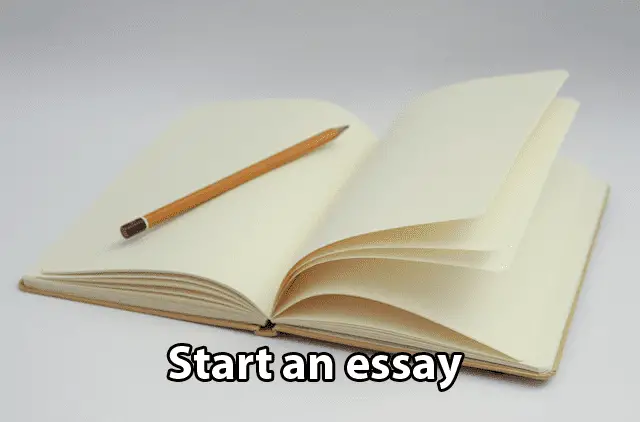
Personal narratives are a powerful tool that can be used to create winning scholarship essays. These essays allow students to share their personal experiences, accomplishments, and aspirations in a way that connects with the reader on an emotional level. Crafting a winning scholarship essay requires careful consideration of the story you want to tell, as well as strong writing skills to effectively communicate your message. In this article, we will unveil the power of personal narratives and provide tips on how to craft an impactful scholarship essay that stands out from the rest.
Understanding the Power of Personal Narratives
Personal narratives have the ability to evoke emotions, capture attention, and make a lasting impression on readers. When crafting a scholarship essay, it is important to tap into this power by sharing personal stories and experiences that are unique to you. Whether it’s overcoming adversity, achieving a personal goal, or making a difference in your community, these narratives allow you to paint a vivid picture of who you are and what you stand for.
By sharing your personal journey and highlighting specific moments that have shaped your character and values, you can create an emotional connection with the readers. This connection helps them understand your motivations, passions, and aspirations on a deeper level. Personal narratives not only showcase your individuality but also demonstrate your ability to overcome challenges and seize opportunities.
Tips for Crafting Winning Scholarship Essays
1. Start with Self-Reflection:
Before diving into writing your scholarship essay, take some time for self-reflection. Consider what makes you unique – your strengths, weaknesses, passions, and values. Reflecting on these aspects will help you identify key stories or experiences that have shaped who you are today.
2. Choose an Engaging Topic:
Select a topic that showcases not only your accomplishments but also your growth, resilience, and determination. Avoid generic topics and focus on experiences that have had a significant impact on your life. This could be a personal hardship you overcame, a transformative experience, or an achievement you are particularly proud of.
3. Craft a Compelling Introduction:
The introduction of your essay should grab the reader’s attention and make them curious to learn more about your story. Consider using a compelling anecdote, a thought-provoking quote, or an intriguing question to captivate your audience.
4. Be Authentic and Genuine:
Avoid trying to fit into what you think the scholarship committee wants to hear. Be true to yourself and let your unique voice shine through in your writing. Admissions officers are looking for authenticity, so be genuine in sharing your experiences and emotions.
5. Structure Your Essay Effectively:
A well-structured essay is crucial for conveying your message clearly and coherently. Start with an attention-grabbing introduction, followed by body paragraphs that provide supporting evidence or anecdotes. Finish with a strong conclusion that reinforces your key message and leaves a lasting impression on the reader.
6. Edit and Proofread:
A winning scholarship essay is not only well-written but also free from grammatical errors and typos. Take the time to carefully edit and proofread your essay before submitting it. Consider asking for feedback from teachers, mentors, or friends to ensure the clarity and effectiveness of your writing.
Frequently Asked Questions
1. How long should my scholarship essay be?
The length requirements for scholarship essays can vary widely depending on the specific scholarship program. Some may require essays of 500 words, while others may allow up to 1,000 words or more. It is essential to carefully read and follow the guidelines provided by each scholarship program to ensure you meet their requirements.
2. Can I reuse the same scholarship essay for multiple applications?
While it may be tempting to reuse the same essay for multiple scholarship applications, it is generally recommended to tailor your essay to each specific program. Adapting your essay allows you to address the unique requirements and criteria of each scholarship, increasing your chances of success.
3. How can I make my scholarship essay stand out?
To make your scholarship essay stand out, focus on telling a compelling personal narrative that showcases your individuality and captures the attention of the reader. Highlight specific experiences, accomplishments, or challenges that have shaped your character and values. Be authentic and let your genuine passion and enthusiasm shine through in your writing.
4. Is it necessary to have a strong academic record to win scholarships?
While having a strong academic record can be an advantage when applying for scholarships, it is not always necessary. Many scholarships consider various factors such as financial need, leadership potential, community involvement, and personal achievements. Focus on showcasing your strengths in these areas when crafting your scholarship essay.
5. Are there resources available to help me with my scholarship essay?
Absolutely! Many resources are available to assist you in crafting a winning scholarship essay. Consider reaching out to your school’s guidance counselor or college advisor for guidance and support. Additionally, there are numerous online resources, books, and workshops dedicated to helping students write impactful essays for scholarships.
In conclusion, personal narratives have the power to create winning scholarship essays by allowing students to share their unique journeys and experiences authentically. By crafting an engaging narrative that showcases your strengths, growth, and aspirations effectively, you can capture the attention of scholarship committees and increase your chances of receiving financial aid for your education.

















